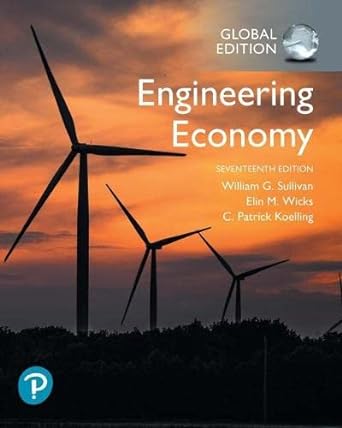11-22. Extended Learning Exercise Consider these two alternatives for solid-waste removal (11.3, Chapter 7): Alternative A: Build...
Question:
11-22. Extended Learning Exercise Consider these two alternatives for solid-waste removal (11.3, Chapter 7):
Alternative A: Build a solid-waste processing facility.
Financial variables are as follows:
Capital investment $108 million in 2008
(commercial operation started in 2008)
Expected life of facility 20 years Annual operating $3.46 million expenses Estimated market value 40% of initial capital cost at all times Alternative B: Contract with vendors for solid-waste disposal after intermediate recovery. Financial variables are as follows:
Capital investment $17 million in 2008 (This is for intermediate recovery from the solid-waste stream.)
Expected contract 20 years period Annual operating $2.10 million expenses Repair costs to $3.0 million intermediate recovery system every five years Annual fee to vendors $10.3 million Estimated market value $0 at all times Related Data:
MACRS (GDS) property class 15 yr (Chapter 7)
Study period 20 yr Effective income tax rate 40%
Company MARR (after-tax) 10% per year Inflation rate 0% (ignore inflation)
a. How much more expensive (in terms of capital investment only) could Alternative B be in order to breakeven with Alternative A?
b. How sensitive is the after-tax PW of Alternative B to cotermination of both alternatives at the end of year 10?
c. Is the initial decision to adopt Alternative B in Part (a)
reversed if our company’s annual operating expenses for Alternative B ($2.10 million per year) unexpectedly double? Explain why (or why not).
d. Use a computer spreadsheet available to you to solve this problem.
Step by Step Answer:

Engineering Economy
ISBN: 9781292265001
17th Global Edition
Authors: William G. Sullivan ,Elin M. Wicks ,C. Patrick Koelling






